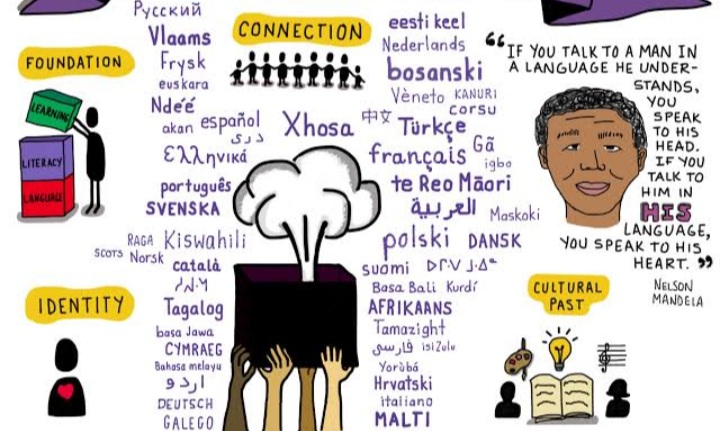Is Education in mother tongue is beneficial for our country’s education system?
Edited by: Divya Thearia

Human life demonstrates the importance of language. The language makes it easier to understand the environment, grasp concepts, and develop a variety of talents. Mother tongue, commonly referred to as the native language, is the first language a person learns when they are a infant. A child first understands their surroundings through the language their mother speaks to them from the moment they are born throughout their entire life. For a variety of reasons, mother tongue is valued. The mother tongue plays a crucial role in how people think and feel. The importance of using one’s mother tongue is highlighted with it’s use in education. A powerful instrument used for learning is mother tongue.

Development of self and culture
A person’s culture , personal identity, cognitive development and intellectual advancement are developed through their mother tongue. A person’s understanding of themselves, their environment, and their past form the basis of their personal identity. It builds a solid foundation for immediate ties to one’s family, community, culture, and identity. Through a fundamental and natural understanding of social origin and character, its solid basis fosters a strong sense of self-acceptance.
Builds a solid foundation for the study of other languages and communication techniques.
The mother tongue provides a solid foundation for learning other languages. Multiple languages can be learned by young children. Therefore, having a solid foundation in their home tongue gives them the ability to acquire additional languages. Children accomplish this by transferring the various linguistic structures to other linguistic systems. Children’s vocabulary and conceptions develop when parents discuss issues and tell stories with them. As a result, when learning is conducted, children easily follow and comprehend, leading to academic success.
Obstacles in using mother tongue
English schooling is predominant in our country. Instead of teaching in one’s mother tongue, several educational systems favour adopting national or “global” languages. English and other international languages are frequently used in education.This is predicated on the idea that learning certain “essential” languages gives kids a leg up in the workplace later on. Lack of mother tongue instruction highlights existing disparities. The absence of mother-tongue education has a significant equity component. Children were unable to read or write clearly by the conclusion of primary school. Because they couldn’t read and understand the instructions, many people failed the test. Even among students in secondary schools, reading comprehension was lacking. Students’ literacy levels in higher education were subpar, making it difficult for them to comprehend and understand what they were reading and writing.

How to improve your mother tongue?
Start teaching literacy in your mother tongue. Early learning success depends on a curriculum that is grounded in the child’s familiar language, culture, and environment, as well as on reading and teaching materials that are appropriate and developed locally. Make sure materials in the mother tongue are available.The only way to ensure that children are interested in and thrilled about reading and learning is to choose materials that they will comprehend and love. Early literacy development takes place, and a child’s home environment has a big impact on how well they learn. It aids in developing the knowledge and abilities of reading and writing in kids. Results demonstrate a noticeable improvement in areas where parents and the community are encouraging literacy development. Children’s reading skills improve the earlier they are exposed to stories.
